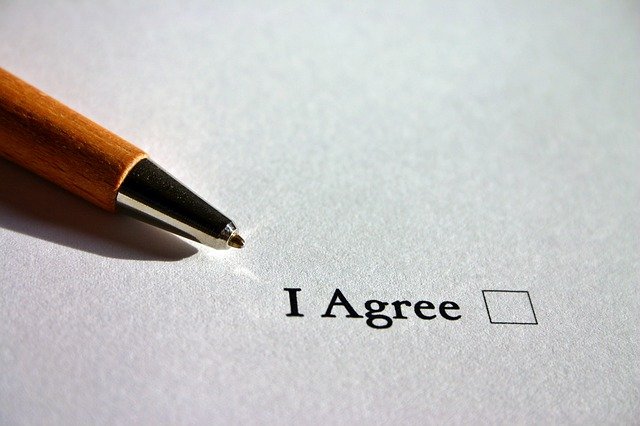Our story begins with the creation of the government. A tool that allows people to come together and participate in a civil society where the rule of law is superior to the rule of force. Where individuals give themselves up to monarchs and leaders in order to gain security from their fellow man. The foundation of our castle of cards is the social contract. A thought experiment that takes us before written history when man was alone in the harsh and demanding state of nature.

The people concede to government in order to create society
The State of Nature
When discussing social contract theory, we often refer to the writings of Thomas Hobbes and John Jacques Rousseau. The state of nature is simply a primal state of mankind. We imagine people without government, without property, and without society. From this state we theorize what sorts of agreements that the people may have made. What sorts of contracts they would agree to. Clearly, life in the state of nature was suboptimal.
Hobbes considered the state of nature one of the most terrible states where people suffered and lived short and miserable lives. He argued we should get out of it as quickly as possible and that any state of government was preferable to the state of nature. He favored an all powerful sovereign to rule over all to remedy these issues that were found in the state of nature. He also argued that people would support any government in order to keep themselves safe from harm.
Rousseau had a more optimistic view of the state of nature where people were less selfish (though still selfish) and compassionate for their fellow human beings. Humans were simpler and dumb, and only through civil society could people relieve themselves of the burden of constantly looking after themselves. Governments allowed people to come together in order to free themselves of the burdens of the state of nature. Notably, Rousseau argued against the use of force to take power and emphasized the need for consent when individuals came together to form governments.
A More Realistic Picture
In reality, we can see that animals form small groups that coordinate in order to feed and protect other members of the group. Early humans probably acted in a very similar way. In some sense, we can view this as the creation of governments. Some members of the tribes had to give up their absolute freedoms in order to receive protection and be welcomed into the tribe. As time grew these tribes increased in size and through the advent of basic technologies such as agriculture, small societies began to take root throughout different regions of the world.
However, this does not mean the social contract is useless. It provides us a framework for looking at why governments are created. Imagine yourself in the jungle and everyone else in the jungle is hungry and ready to kill. It would be a lot nicer and more conducive to survival if everyone in the jungle cooperated and helped each other survive the difficulties of jungle living rather than have to worry about being stabbed in the back. Thus, we agree to a certain set of arbitrary rules and assign someone to make sure the rules are enforced. This gives us peace of mind and makes sure everyone follows the agreement (or else they are punished).
People Are Flimsy
Governments still exist today, yet people complain about them without end. Unfortunately, our contracts are based and rooted in the trust of other human beings. And other human beings have their moments where they are untrustworthy. Thus, even with a set of rules people will tend to backstab each other when they feel like it is advantageous to their positions.
In this series, the government is represented by the castle. Unfortunately, our governments are built with people and people aren't always reliable. Thus, the social contract creates a castle built out of cards. Something fragile enough to topple over when the people lose faith in the contract and rebel against it. Empires rise and fall, gain power and lose power, and expand and contract based on the strength of the contract at any moment. When everyone is happy, a government's hold over its people is strong. When everyone is angry, the government begins to buckle.
People make up the governments and are held up to these contracts by their people. However, at times, people use government to their advantage rather than to the advantage of the society. Thus, we have a tug of war between the government and its citizens. This eternal flux shakes our castle, even today. How did we find a way to stabilize these fragile governments? We found ways to protect our towers and keep the people happy through safety, opportunity, and private property.